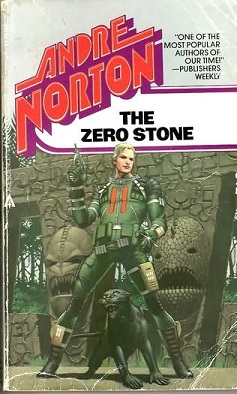Around the turn of the Millennium and for a couple of years into the Bush era, it seemed that British science fiction was were most of the interesting writers were coming from, so much so that people were seriously speaking of a British sf boom, overshadowing their pale and inward looking American cousins. A decade later and people are writing gloomy articles about the British sf bust and how much of the earlier promise of British science fiction seems to have been lost. Now I remember being excited for and convinced that this boom was happening at the time, but looking back on it I wonder. Was there ever a true British SF Boom or was it all smoke and mirrors conjured from China Miéville’s instinct for self promotion and J. K Rowling’s runaway and unexpected success with Harry Potter?
The latter is of course the most important, getting millions of children, young and not so young adults to read fantasy, inspiring a legion of now twentysomething readers to read and write fantasy and science fiction themselves. Rowling’s impact on the existing sf and fantasy scene in the UK seems more limited though: published by Bloomsbury, as far removed from a genre publisher as you can get. The same goes, to a lesser extent to writers like Philip Pullmann and Jasper Fforde, new, popular, but with limited (direct) impact on the science fiction genre.
Instead the dominant figure of Turn of the Millennium UK science fiction was China Miéville: young, politically engaged, erudite, sexy. He became the voice of a new, Guardian acceptable form of science fiction, a generation of writers that also included e.g. Justina Robson, Adam Roberts, Liz Williams and Alastair Reynolds, who all had their debut novels around 2000. In that regard you could say that there was a boom of new, interesting writers, one that for once had recognition in mainstream media.
Similarly, the case Andrew M. Butler made for the boom back in 2003, Thirteen Ways of Looking at the British Boom, which took a longer term view, has some merit. But the weak point in it remains that it counts several generations of British writers as part of the boom, everybody from M. John Harrison to Gwyneth Jones and Charlie Stross, many of which were writers who’d been writing for years or decades like Harrison and Jones or, who’d like Stross, might have been British but were clearly focused on the American market.
Looking back then, in my opinion the boom was largely the result of a benificial media climate, open to the appeal of fantasy and science fiction due to the success of Rowling, Pullmann, Fforde and Jeff Noon with mainstream readers, as exploited by media friendly writers like Miéville. This exaggerated what was a normal cyclical upturn in new published writers. The good news is, if there wasn’t really a boom, there can’t be a bust either, just the absence of media attention and buzz…
And yet the participants in the latest Coode Street Podcast do seem somewhat pessimistic about the current state of British SF and I have to agree with them somewhat. There are a lot of interesting things happening in science fiction, but it seems to come from outside the UK at the moment. What’s really galling to me is the lack of attention to female sf writers in the UK as opposed to elsewhere. N. K. Jemisin, Kameron Hurley, Ann Leckie, Karen lord, Aliette de Bodard: all non-UK writers broken through in the last few years, joining others like Nalo Hopkinson or Elizabeth Bear. Meanwhile British authors like Gwyneth Jones, who is easily as important a sf writer as any of the Baxter-McAuley-Banks generation and who started publishing at roughly the same time a decade or so earlier [1], has to self publish the latest novel in her best known series.
Justina Robson, Liz Williams, Tricia Sullivan, Pat Cadigan, Mary Gentle, to a certain extent, all British female authors who should’ve had the same success as writers like Ken MacLeod, Charlie Stross, Adam Roberts, John Meaney etc, but never quite seem to have gotten the same support of their publishers. It’s this lack that I’m more and more convinced is why British SF is going through a bust, because only the male writers are left in the Serious Science Fiction ghetto and they’re not enough to sustain the hights of the boom.
[1]: Thanks Ian!
